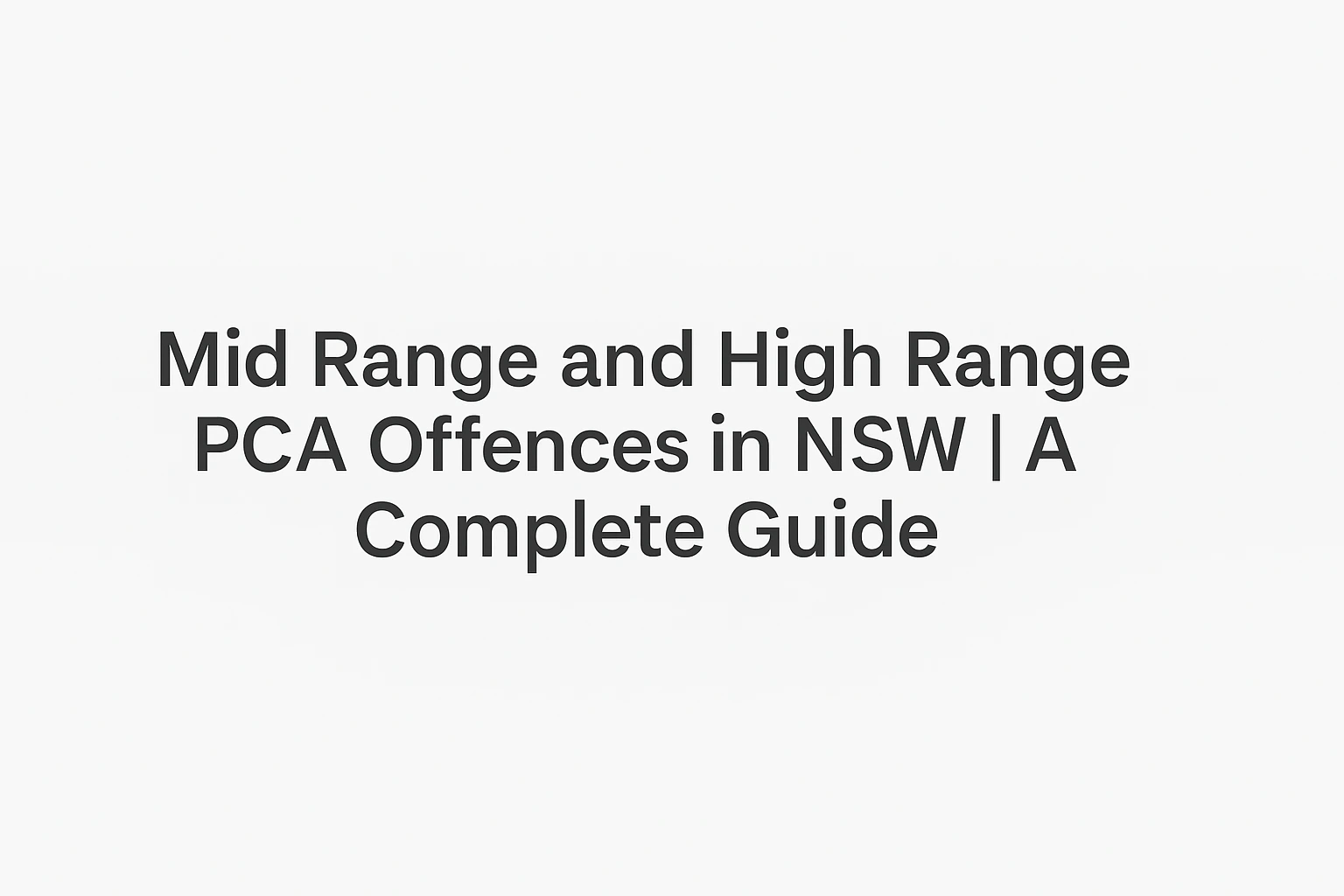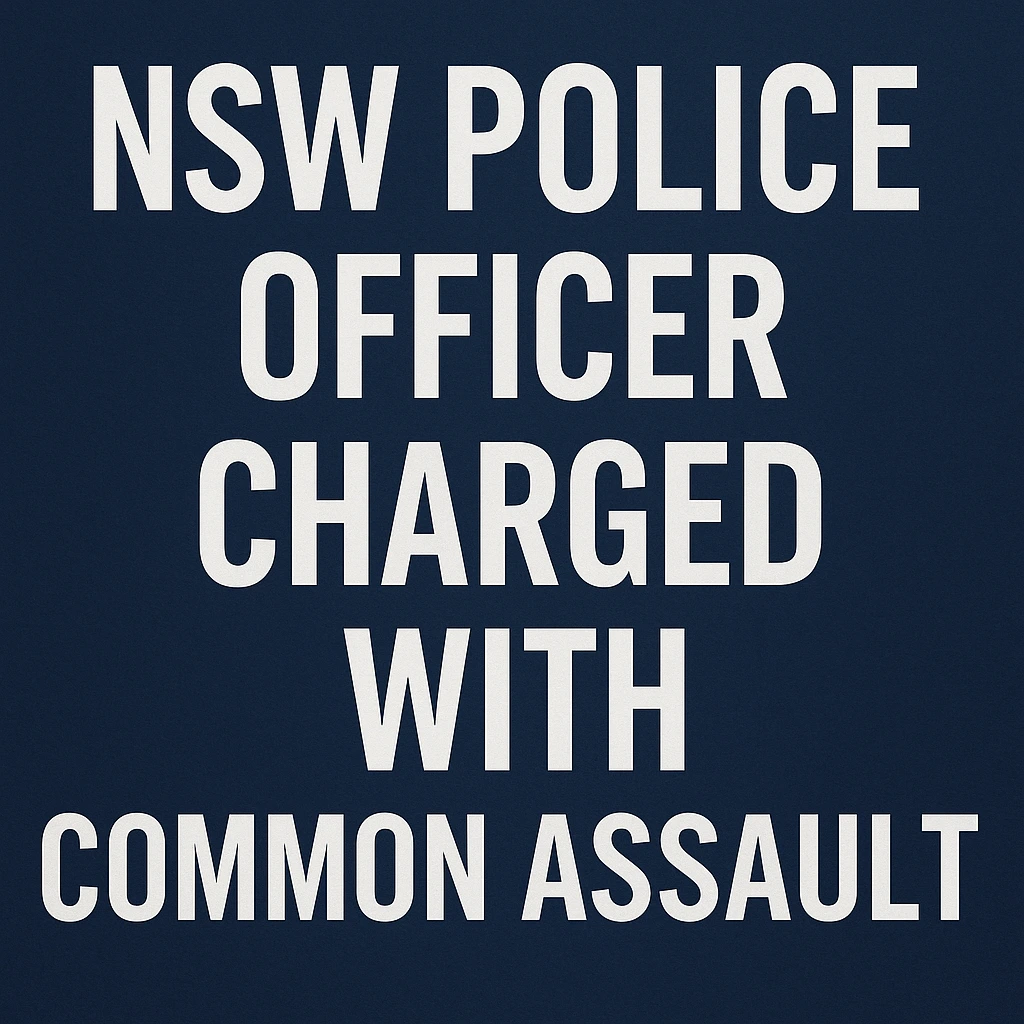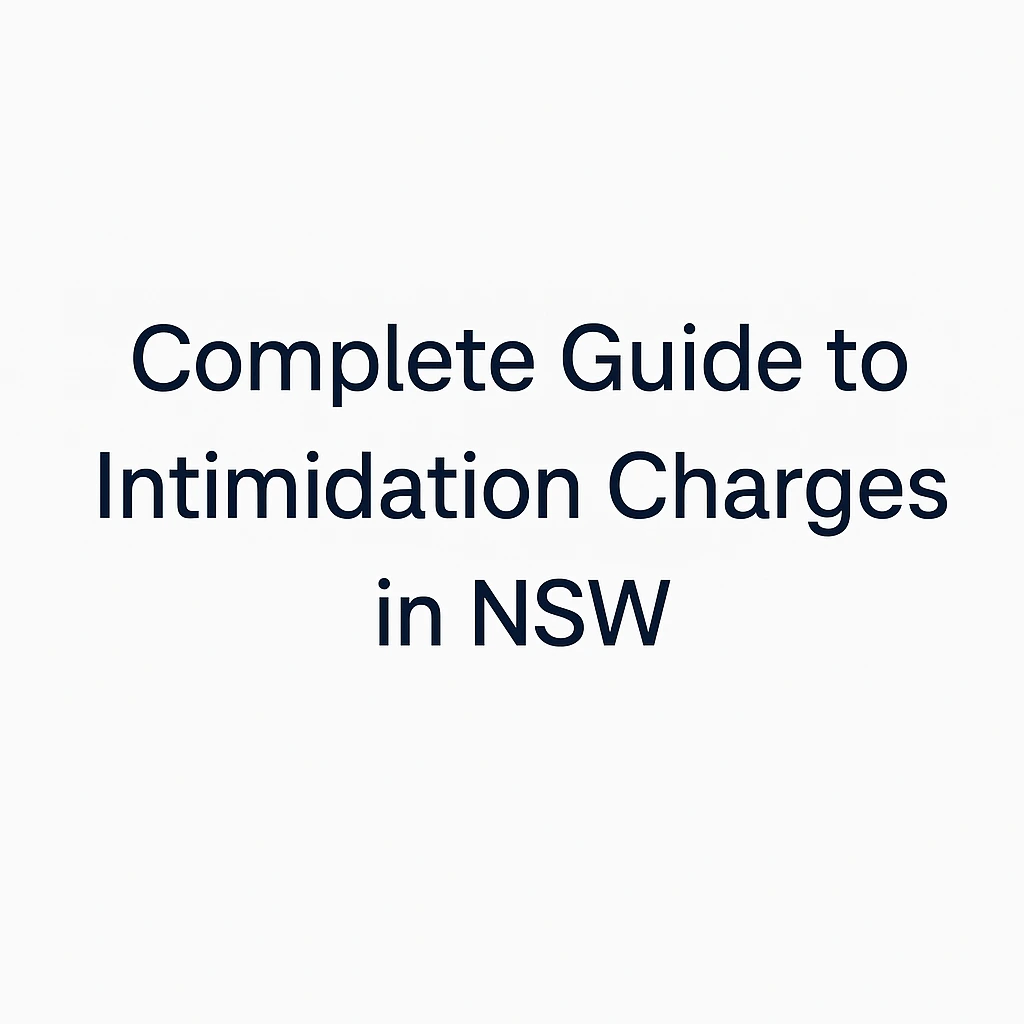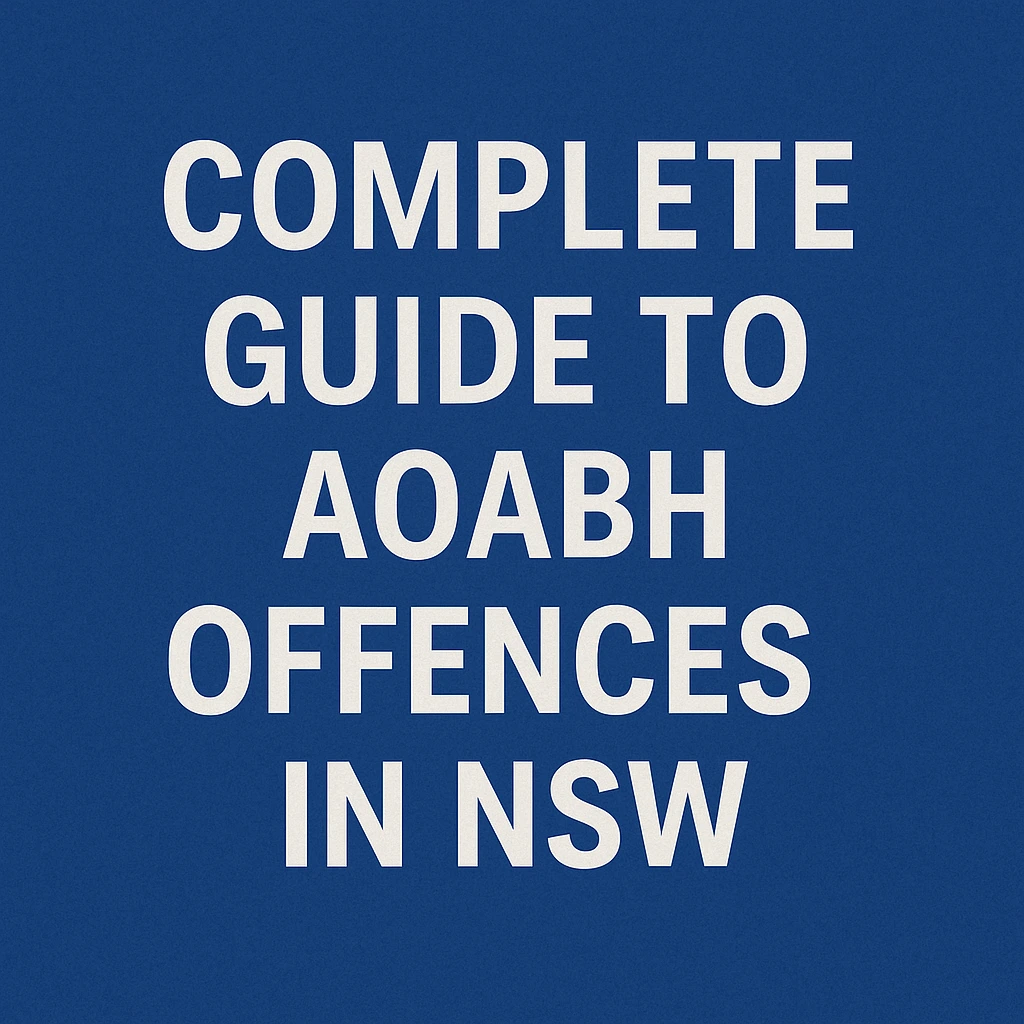Understanding PCA Offences in NSW
Driving under the influence of alcohol is taken very seriously in New South Wales (NSW). The law uses the concept of Prescribed Concentration of Alcohol (PCA) to measure and categorise drink driving offences. There are different levels of PCA offences – commonly referred to as low, mid, and high range. Low range refers to a blood alcohol concentration (BAC) from 0.05 up to 0.079. Mid range PCA covers a PCA from 0.080 to 0.149, while high range PCA applies to readings of 0.150 or above. These categories are defined under section 110 of the Road Transport Act 2013 (NSW). In practical terms, a mid-range or high-range PCA reading indicates a serious drink driving offence that will be dealt with by a court.
If you are charged with a mid-range or high-range PCA offence, you will typically be issued an immediate licence suspension notice by police. This means you cannot drive from the moment of charge until your matter is resolved in court. Being accused of drive with middle range PCA or high-range PCA means you are facing significant penalties and the potential imprisonment. It is crucial to understand what these offences involve and the consequences that can follow a conviction.
Mid-Range PCA Offences in NSW
A mid range PCA offence occurs when you drive with a PCA of 0.08 to 0.149. Put simply, if you hold a full licence and record a PCA in that range, you can be charged with this offence. The charge of drive with middle range PCA is treated as a criminal matter and will require you to attend court.
Mid-range PCA offences are not minor. Even if it is your first middle range PCA offence, the law considers it a serious breach of road safety. Upon a charge, police will immediately suspend your driver’s licence. You will then need to appear before a Magistrate in the Local Court, where the matter will be heard and penalties determined. It’s important to seek legal advice early if you are facing a mid range PCA charge, as a lawyer can help you prepare for court and possibly minimise the penalties.
Penalties for Mid Range PCA
Even first-time middle range PCA NSW offenders face harsh consequences upon conviction. The mid range PCA penalties NSW are significant, even for a first offence. Upon conviction for a mid-range PCA (0.08–0.149) as a first-time offender, you face:
- A maximum fine of $2,200.
- Up to 9 months’ imprisonment.
- Licence disqualification for at least 3 months.
If you have a prior drink driving offence (or other major traffic offence) in the past five years, the penalties increase. For a mid range PCA subsequent offence, you could be looking at:
- A maximum fine of $3,300.
- Up to 12 months’ imprisonment.
- A minimum of 6 months.
In addition to these mid range PCA penalties NSW, most mid-range PCA offenders in NSW must complete an interlock period. For a first mid-range offence, this typically means a shorter initial disqualification (as low as 3 months) followed by at least 12 months with an interlock device installed in your vehicle. In short, the mid range PCA penalties NSW for a mid-range PCA conviction ensure a lengthy loss of licence and other serious consequences.
Dealing with a Mid Range PCA Charge
Being charged with a middle range PCA NSW offence can be daunting, but there are steps you can take to potentially reduce the severity of the outcome. Firstly, it’s advisable to engage an experienced traffic lawyer. They can guide you through the court process, help prepare your case, and advocate on your behalf. Good legal representation is especially important for mid-range and high-range drink driving offences because of the risk of harsh penalties.
One common strategy for first-time middle range PCA offenders is to complete a Traffic Offender Intervention Program before sentencing. This rehabilitative course educates offenders about safe driving and the dangers of alcohol. Successfully finishing the program shows the court that you are taking the matter seriously and working to reform your behaviour. While it doesn’t erase the offence, it may lead to a more lenient sentence.
When you attend court for a mid-range PCA matter, you or your lawyer can present mitigating factors to the Magistrate. These might include your prior good driving history, your need for a licence for work or family commitments, your remorse and insight into the offence, and any steps you’ve taken to address your drinking habits (for example, counselling or the traffic offenders program). In some cases, where the circumstances are exceptional, the court may be convinced to deal with the matter without recording a conviction – for instance, by imposing a Conditional Release Order without conviction. However, non-conviction outcomes for middle range PCA offences are rare, especially after law reforms that emphasise the seriousness of drink driving.
High-Range PCA Offences in NSW
What is a High-Range PCA Offence?
High range PCA is the most serious category of drink driving offence in NSW. It applies when a driver’s PCA is 0.150 or higher. Being charged with a high-range PCA indicates a very high level of intoxication, which poses extreme danger to you and the public. As with mid-range offences, police will issue an immediate on-the-spot licence suspension when charging someone with a high range PCA. The offence is formally known as “Drive with High Range PCA” under the law.
Every high-range PCA charge is dealt with in court, and the courts treat these offences very seriously. The higher your alcohol reading, the more likely the Magistrate is to consider options like imposing community service or even a jail sentence, particularly if there are aggravating circumstances (such as dangerous driving, an accident, or passengers being put at risk).
Penalties for High Range PCA
The high range PCA penalties for a first offence are severe. For a first offence (no prior major offences in the last five years), the high range PCA penalties NSW legislation prescribes include:
- A maximum fine of $3,300.
- Up to 18 months’ imprisonment.
- Licence disqualification for at least 6 months.
For a high-range PCA offender with a prior offence in the past five years, the consequences escalate further:
- A maximum fine of $5,500.
- Up to 2 years’ imprisonment.
- A minimum 9 months off the road.
Even for a first-time offender, these high range PCA penalties NSW can be life-altering. Just like with mid-range offences, high-range offenders will be subject to the interlock period. Upon conviction, high range PCA penalties include a requirement to install an interlock device after the disqualification period. For a first high-range offence, this typically means at least 6 months disqualification followed by 24 months (2 years) of interlock. Overall, high range PCA penalties are intended to punish offenders sternly and deter dangerous drink driving.
Sentencing and Consequences for High Range PCA
NSW courts have made it clear that high-range drink driving is a very serious offence for which imprisonment is a genuine possibility. When sentencing high-range PCA cases, Magistrates consider factors such as your PCA level (for example, whether it was extremely high, like 0.200 or more), whether you were involved in a collision or near-miss, your driving record, and any other aggravating features (like speeding or having children in the car). The high range PCA penalties NSW courts hand down reflect an aim to deter both the individual offender and the public from dangerous drink driving.
For first-time high-range offenders, courts often impose hefty fines, lengthy disqualifications, and sometimes community service or a community-based order instead of jail. In particularly serious cases – for example, an extremely high PCA or a crash – a short prison term may even be imposed on a first offence. Repeat high-range offenders face a very high likelihood of jail, given the danger involved and the fact they have been warned before.
If you are facing a high-range PCA charge, it is critical to obtain legal representation. A seasoned lawyer can help present mitigating factors (such as completion of a rehabilitation program, character references, or evidence of addressing alcohol issues) to try to reduce the penalty. Nevertheless, avoiding a conviction for a high-range PCA is extremely rare.
Consequences of a PCA Conviction
Aside from the direct court-imposed penalties, a conviction for a mid-range PCA or high-range PCA offence has other lasting impacts. You will have a criminal record, which can affect employment opportunities and even overseas travel (some countries may deny visas to those with drink driving convictions). Losing your licence for months or years can significantly disrupt your work and personal life, especially in areas without good public transport. Insurance premiums are also likely to rise, as insurers view drivers with drink driving records as high-risk.
On a more positive note, the legal system does allow individuals to rehabilitate and eventually return to driving. After serving the disqualification period (and completing any required interlock period), you can gradually get back on the road. It’s crucial to follow all court orders and interlock requirements; driving while disqualified or attempting to tamper with an interlock device are separate offences that carry serious penalties.
Contact AMA Legal
Facing middle range PCA NSW or high-range PCA charges can be frightening, but you don’t have to go through it alone. If you have been charged with drive with middle range PCA, we can guide you through the process and fight for the best possible outcome.
Contact AMA Legal on (02) 8610 3764 for advice and representation from our Blacktown Criminal Lawyers. We regularly represent clients in high range PCA matters and will guide you through the court process, help you prepare, and defend your rights at every step. Reach out to us today for a confidential consultation.





